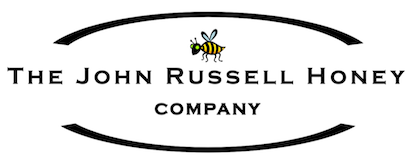Are honeybees endangered?
When I took the beekeeping course at The University of Manitoba 14 years ago, I remember Charles Polcyn coming to our class and inviting us to join the Red River Apiarists. In fact, at their next meeting, we would have a chance to see a movie about bees, I think it was called Queen of the Sun. Only two of us from the class attended the RRAA meeting that time, but I remembered the movie, as it was a vivid portrait of the collapse of the honeybee population in the US, Europe, and Asia. The mysterious condition was called Colony Collapse Disorder and it was named a serious situation, considered a global bee crisis. Ever since then, when Art and I started keeping bees of our own we have been made aware of the fragility of the honeybee population.
But lately, I have been reading reports that honeybees are not declining. The number of colonies of honeybees in Canada in 2023 rose by 3.6 % over the previous year, according to Statistics Canada. There were 794,341 honeybee colonies in Canada in 2023.
(See https://www.statcan.gc.ca/o1/en/plus/5313-busy-bees-23)
Because honeybees are considered livestock, the prediction is that they are a managed population, and so while there may be ups and downs over the years, they will never disappear. Instead, we are hearing and reading reports that native bees must compete with honeybees for nectar. This seems to be true in cities where there has been a noticeable decline in native bees, observed by scientists. Everyone is on board planting bee gardens.... this is a good development, but it might only be helping honeybees. The honey industry, and beekeepers have been very successful in getting the word out that there is a loss of habitat for bees and so all my friends and neighbors know about this situation. But few know about native pollinators.
This raises questions for me:
- Are we endangering native pollinators?
- Are honeybees an invasive species?
- Are bees really livestock, like cattle and hens and sheep?
- As beekeepers, are we contributing to the reduced circumstances of native pollinators?
- Is there room for both honeybees and native pollinators?
- Do non-native honeybees upset the balance of nature?
So, who are we to believe? Numerous articles that have come out in the newspapers and magazines can give a conflicting picture of both native and introduced pollinators. There was a recent article on CBC news that was aired on “As It happens” about the endangered native pollinators.
(Sheena Goodyear· CBC Radio · Posted: May 01, 2024, 5:17 PM CDT | Last Updated: May 2)
In a study of Montreal and surroundings, Gail MacGinnis found a decline in native pollinators going hand in hand with the rise in the number of honeybees on the area. She acknowledges that both wild and introduced pollinators suffer from habitat loss. This habitat loss can often be more marked in rural areas with extensive mono cropping. She notes that honeybees tend to travel greater distance when foraging, than smaller native bees and this also affects population, especially in urban areas where flower clusters are scattered with buildings and pavement etc., in between. Another concern was the ability of diseases to spread to native species from imported honeybees. Also, her study examined urban areas both before and after there was an influx of urban beekeeping and an interesting finding was that the flower sources available to both native and imported bees didn’t seem to increase. She suggests, more intense regulation of beekeeping in urban areas, along with encouragement to plant a greater number and diversity of flower sources in cities. Decline in wild bee species richness associated with honeybee (Apis mellifera L.) abundance in an urban ecosystem).
Another article from Calgary quotes beekeepers advising residents to plant native flowers in their yards and leaving rough patches in their yards for wild bees to nest in the ground undisturbed, rather than keeping a hive of honeybees. (Sarah Moore, CBCNews, Jun 24, 2021, More Honeybees Won’t Save Wild Ones, say Calgary Beekeepers)
I haven’t said anything about rural beekeeping and its effect on wild pollinators, except to remark that habitat loss affects both kinds of bees. I will deal with the subject in the next article.

